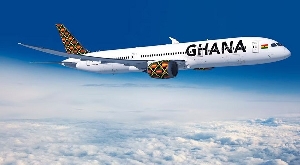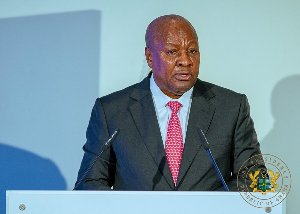Business News of Monday, 12 May 2014
Source: B&FT
WAPCo considers expansion amid supply shortfalls
The West African Gas Pipeline Company (WAPCo) is considering expanding the pipeline from its current capacity of 170million standard cubic feet of gas per day (MMscfd) to 315million; because the company believes it can transport gas from Ghana or from new sources in Nigeria.
Managing Director of the company, Walter Perez, told a meeting that discussed security of the pipeline in Accra his outfit is “proactively moving forward with initial engineering” to facilitate expansion of the pipeline.
“Although gas volumes currently received from Nigeria are significantly below expectation, we envision increased utilisation of the pipeline going forward with potential new sources here in Ghana and likely new sources in Nigeria,” he said.
The belief is that if it does not transport more gas from Nigeria to recipient countries, it may in the future transport gas from Ghana to Benin and Togo -- and perhaps La Cote D’Ivoire, which has expressed interest in joining the pipeline consortium.
The pipeline is supposed to deliver 133MMscfd to Benin, Togo and Ghana; its delivery has, however, been way below expectation due to lack of supply. At the best of times, even before it broke down for ten months beginning in August 2012, it provided about 40% to 60% of the contractual volumes.
The Nigerian supplier, N-Gas, which is a consortium made up of the Nigeria National Petroleum Corporation (NNPC), Shell and Chevron, have often cited continuous breach of the pipelines connecting the main one and competition for the product in the Nigeria market as reasons for the shortfall.
The contractual price of the gas, which is said to be no longer competitive, has also been cited in some circles as being partly responsible for the paucity of supply.
Walter Perez said the pipeline however remains “a critical and strategic asset for regional economic growth and integration”-- a reason beneficiary countries must support the company to protect it from the threats it faces both on land and at sea.
“It is clear that multiple layers of protection are needed to confront the challenges we face on and offshore. In and around WAPCO host communities, especially in Nigeria, indiscriminate sand-mining has been a constant threat to the onshore section of the pipeline. Offshore, the company has endured several key challenges, including two major pipeline breaches...” he said.
The World Bank estimates -- based on a financial modelling exercise -- that the cost of not having gas to generate power in Ghana is about US$1million per day. So when the pipeline was breached for 315 days, Ghana, by the bank’s conservative estimates, lost US$315million.
ECOWAS, which proposed the construction of the pipeline in 1982, has been seeking an inter-connection of transmission lines and power plants in the sub-region.
Ghana already shares power with Togo and Benin, and sometimes La Cote D’Ivoire. Government’s vision has been to attain 5,000 megawatts of generation capacity by 2016; and in the process gas is supposed to play a major role.
While about 90MMscfd is expected from the Jubilee oilfield initially, when the gas processing plant is ready, other gas fields are expected later to boost the country’s own gas generation.
The government is also considering the possibility of importing Liquefied Natural Gas to shore-up supply.












